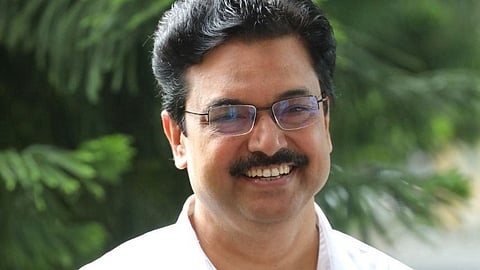

Delhi University Vice-Chancellor Yogesh Singh has strongly defended the three-language formula proposed under the National Education Policy (NEP), dismissing criticism as politically motivated rather than academically grounded.
In an exclusive interview with PTI, Singh argued that opposition to the policy stems from resistance to necessary educational reforms.
“The National Education Policy emphasises three languages — one being the mother tongue, with students free to choose any two other languages,” Singh told PTI.
“The focus remains on the mother tongue, but the choice is open. There is no reason for unnecessary fear in Southern India. This policy empowers students rather than imposing any language on them. It provides flexibility and broader linguistic exposure, which is beneficial in today’s globalised world,” he added.
Addressing concerns over the medium of instruction, Singh explained that Delhi University admits students from across the country, primarily offering instruction in English and Hindi.
“If a student wants to study in a language like Gujarati, Marathi, or Kannada, we do not have the facilities to provide that. However, universities in Karnataka, Maharashtra, or Gujarat do. Students should go where such options are available,” he said.
He stressed that limiting students’ choices harms their academic growth.
“In the past, we restricted choices due to lack of infrastructure. Now, with India making significant strides in higher education, there is no need for such limitations,” Singh added.
Singh strongly criticised those opposing the three-language formula without substantial reasoning.
“When we are not forcing students to study a particular language, there is no reason for unnecessary opposition. Some are opposing for the sake of opposition. I do not see any merit in that argument,” he asserted.
Promoting linguistic diversity?
On the issue of regional languages, Singh reiterated that the NEP actively supports linguistic diversity rather than undermining any language.
“The policy allows the use of regional languages in primary education and encourages linguistic inclusivity. It does not impose any restrictions,” he clarified.
As the NEP continues its nationwide rollout, Singh remains optimistic that its long-term benefits will outweigh any initial scepticism.
“This policy is a step towards making India’s education system more globally competitive while preserving its cultural and linguistic heritage,” he told PTI.
